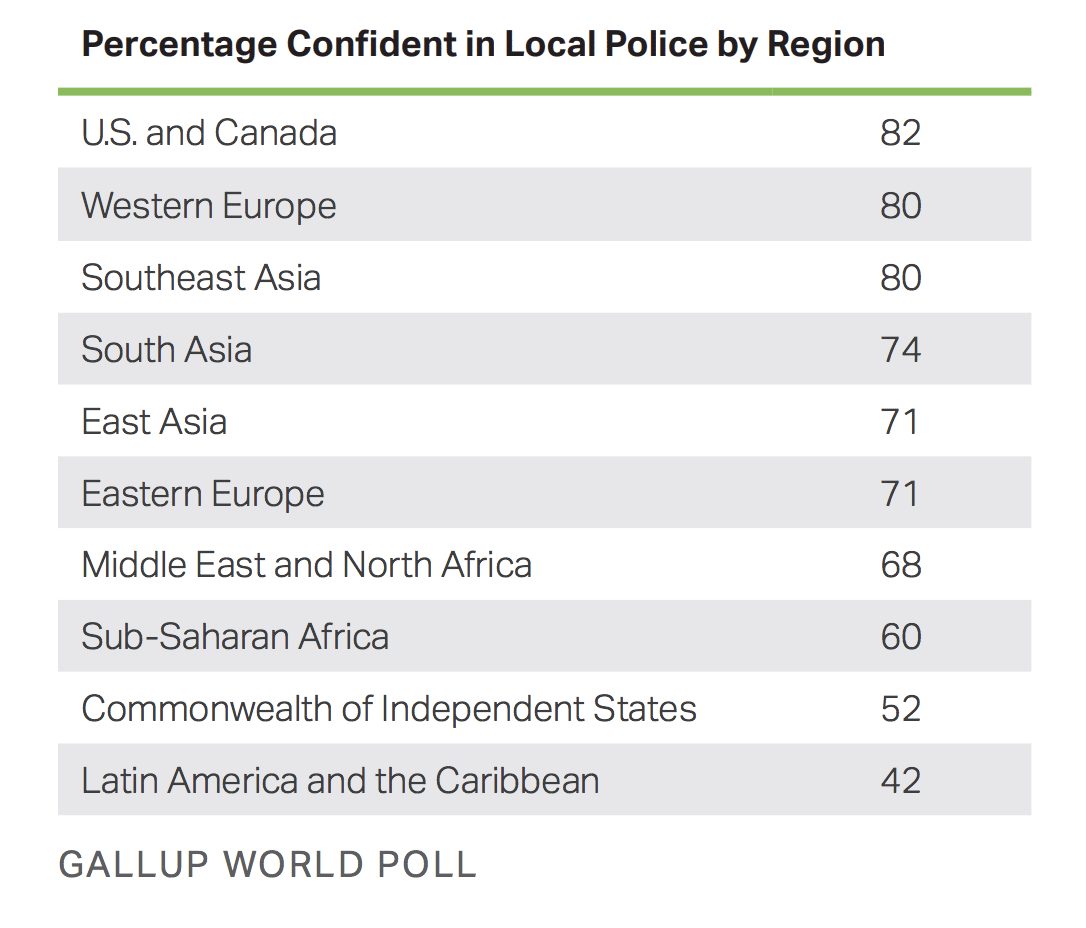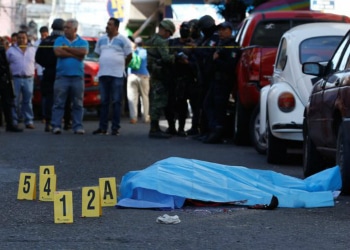For nearly a decade straight, citizens in Latin America and the Caribbean responding to an annual survey have consistently said that they feel less safe than their counterparts in any other region of the world, underscoring the complexity of the region’s security situation and the challenges faced in trying to improve it.
The Gallup polling organization’s 2018 Global Law and Order report found that respondents from Latin America and the Caribbean were the least likely of any group in the world to feel secure in their communities.
According to the report, the region’s “law and order index” score of 62 was the lowest in the world and slightly worse than what the region scored the year before. Five of the 10 countries where residents were least likely to feel safe were in Latin America and the Caribbean.
Unsurprisingly, Venezuela was again ranked as the least secure country in the world, tied with war-torn Afghanistan. InSight Crime argued the Andean nation could be considered a “mafia state” in a recent investigation looking into the exponential growth of organized crime there.
Mexico and the Dominican Republic were also among the world’s least secure nations. No country in Latin America and the Caribbean was among the world’s top 50 most secure nations, according to the report.
Moreover, the report also found that just 42 percent of respondents in Latin America and the Caribbean have confidence in their local police forces, the lowest level of any region in the world. Venezuelans and Mexicans were the least likely to have confidence in their local police.

(Graphic courtesy of Gallup)
However, some countries in the region did show an improvement from last year’s rankings. For example, the report found that El Salvador’s score of 67 was a “marked improvement” from last year and that a declining murder rate in recent years reflects the country’s “slowly improving security situation.”
The report was based on the responses of around 1,000 adults from more than 140 countries to questions regarding their level of confidence in local police and whether or not they feel safe walking around their city, among others.
InSight Crime Analysis
Measuring insecurity is often a complex process, but the responses to basic questions about perceptions of security that respondents provided offer a simple barometer of security conditions that says a lot about the complexity of the region’s overall security situation.
There has been seeming progress in some key countries in recent years. Colombia signed a 2016 peace deal putting a formal end to a decades-long internal conflict. And murder rates in two of the most violence-wracked nations in the region, Honduras and El Salvador, have been falling.
SEE ALSO: InDepth Coverage of Homicides
But in general, residents of Latin America and the Caribbean still consistently feel less safe than their international counterparts, suggesting that deep issues driving insecurity in many cases remain unaddressed.
For example, El Salvador’s declining murder rate may be more a result of a growing sophistication among the country’s gangs and adjustments made to their criminal activities in response to extraordinary anti-gang measures utilized by the government in recent years. It’s possible that these and other factors — including abusive police tactics and vigilantism — are contributing to insecurity and the country’s low law and order score even as the murder rate declines.

